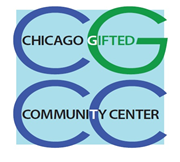Gifted Learning Center~North Shore (GLC~NS) is a learning center created specifically for gifted and profoundly gifted students, including those seeking socialization support in an academic environment or whose “intensities” are often not a good fit for gifted programs with a traditional school approach. The center offers day classes, after-school and summer programs, and parent support groups.
According to the National Association for Gifted Children, there are approximately three million gifted and talented students in the United States or approximately six percent of the total school population. This suggests that about five to seven percent of the school population is capable of higher intellectual and/or academic performance than the general norm. This number increases when the parameters of identification are expanded to include various areas of giftedness, such as leadership, creativity, and the visual/performing arts. It is generally accepted, although not readily admitted, that for many of these gifted students, their learning and/or emotional needs are not met in the traditional classroom. Furthermore, this academic neglect often leads to frustration and negative behavioral changes in these students as well as significant underachievement. These students are in need of services or activities that are not normally provided by the school.
Chief among these students’ sensitivities is their need for autonomy. Traditional school settings do not provide for a child's right of self-determination and choice, and a gifted child's need for autonomy can be the driving force behind the “issues” and “challenges” that are often misdiagnosed and misidentified. When gifted kids are asked what their main obstacle is they almost always answer “school.” No Child Left Behind has compounded the problem and changed the tenor of school by focusing on students who need help. For students with exceptional potential and capacity for learning, they are often caught in the mythology that surrounds gifted students and their educational needs. They are at best underserved and at the worst being ignored, lost in the momentum to meet standards and retain government funding. They are not viewed as needing help in the form of special education since they are able to “meet or exceed” standards before instruction even begins.
There is an immense gap between the needs of gifted learners and the curriculum that is offered to them. We have also seen that this may cause serious motivational, social, and cognitive problems for the student. We know that these experiences affect the child's emotional development as well as his or her academic potential. Our experience with the public school system has shown that many regular education settings are not prepared for the gifted student who does not fall in the category of high achieving, and even when school systems have gifted services in place, they are most often pull-out, project-based approaches. Research reveals that educational functioning is better supported in a comprehensive, preventive approach rather than the fragmented, project based approach that prevails today, and that gifted students attending special programs perform better than peers in regular programs. Most teachers recognize that instructional designs that are effective with inexperienced learners can, and do, have a negative effect when used with experienced, more advanced learners. These negative effects can also be seen in the social-emotional realm due to the impact of the intellectual dissonance experienced by an underachieving gifted child in a traditional program. The effects are profound and have a powerful and lasting impact on the whole experience of her or his childhood.
Researchers have come to understand that the “implicit curriculum” of the teacher's inner state shapes interactions in the classroom and sets the tone for learning. We know that while these effects can be subtle, they are pervasive and immediately recognizable by the children. This context exists between staff and students and among the students themselves. This is a concept that is well accepted in professional studies that address the psychology of humans. Mental health practitioners believe that the early environments set the stage for every aspect of the child's internal and external functioning, and that the child's relationship with caregivers acts as a template. This template permanently molds the child's capacities to relate on both interpersonal and intrapsychic levels.
Those of us who work with this population need to understand the complex socio-cognitive context of our relationships with the gifted student and with the classroom as a whole. We cannot truly demonstrate care without being aware of the experience of each student. Above all, we need to create a place of safety where gifted children's voices can be heard because these students are confident that they will be listened to. This is a hopeful context for the gifted child's educational experience, and a necessary first step to creating the educational environment they deserve.
References
Clark Foust, R. Moritz Rudasill, K.Carolyn M. Callahan, C. (2006), An Investigation Into the Gender and Age Differences in the Social Coping of Academically Advanced Students. Journal of Advanced Academics. V 18(1) p. 60-80.
Cloninger, K. (2008) Giving Beyond Care, An Exploration of Love in the Classroom, Curriculum and Teaching Dialogue, Volume 10, Numbers 1 & 2, p. 193–211.
Cloud, J.Badowski, C. Rubiner, B.Scully, S. (2004) Saving the smart kids. Time; V. 164, 13 p. 56-61.
Posted retroactively on March 13, 2015.
